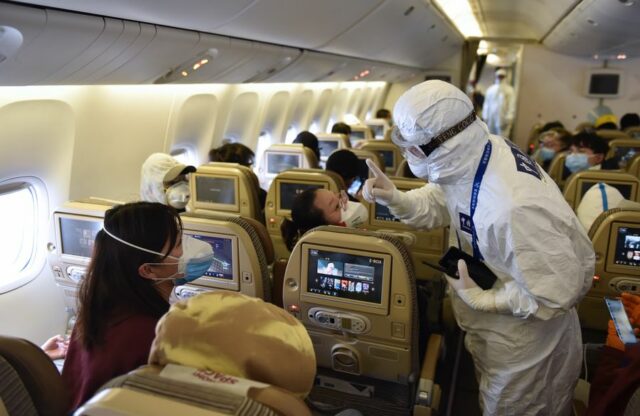NEW DELHI:: China is trying hard to deny that the COVID-19 virus originated in Wuhan, its commercial heartland in the east. The mandarins are also trying to change the narrative to suggest that the Chinese authorities did a heroic job in containing the spread of the virus inside the country, and was well placed to offer that help to other countries.
On both counts the Chinese have been economical with the truth. The Global Times reported on Jan. 1, 2020, that the Wuhan seafood market had been closed on that day “after 27 people were hospitalised in December 2019 with an unidentified strain of pneumonia.” It turned out that most of them were vendors at the market. The same paper reported on Feb. 22, 2020 that a “wider spread” of the virus had taken place at the same seafood market in “early December [2019].”
The question is what did the authorities do with the first outbreak in early December? Nothing it appears, with the result that more than three weeks were lost. The lockdown on Wuhan was imposed only on Jan. 23, resulting in the loss of another three weeks. So for about 7 to 8 weeks after the virus was first detected in Wuhan, the authorities appeared to have done nothing.
Add to that, the Chinese authorities harassed and silenced Dr. Li Wenliang who was the first to sound the alarm on the coronavirus on Dec. 30, 2019. Unfortunately, he died on Feb.7, 2020 after contracting the disease while working at the Wuhan Central Hospital.
Meanwhile, having controlled the coronavirus in their own country, China has accused the US of producing the virus, and is projecting the manner in which it went about controlling the virus as the example to be emulated by other countries.
What China understandably wishes to avoid addressing, is the problem it has created for the world, a problem of devastating proportions in terms of lives lost and economies damaged. The world should not let China off the hook by buying the false narrative it is trying to sell.
The world in general, and India in particular, should draw some important lessons from this crisis. Dependence on China for strategic goods such as Active Pharmaceutical Ingredients (API), for the pharma industry, should be ended. India imports around 70% of its API from China. Self-reliance should be created in this sector regardless of the cost involved. China’s leaders have a record of halting exports of strategic goods (such as rare earth minerals) to punish countries that defy them.
The coronavirus pandemic adds to the long list of criminal actions of the Chinese government. These have ranged from ruthless domestic suppression, support for rogue regimes, proliferation of nuclear weapons, flouting international conventions (as in the South China Sea) and stealing intellectual property. China should be held to account.
The writer is a former ambassador. Views are personal





